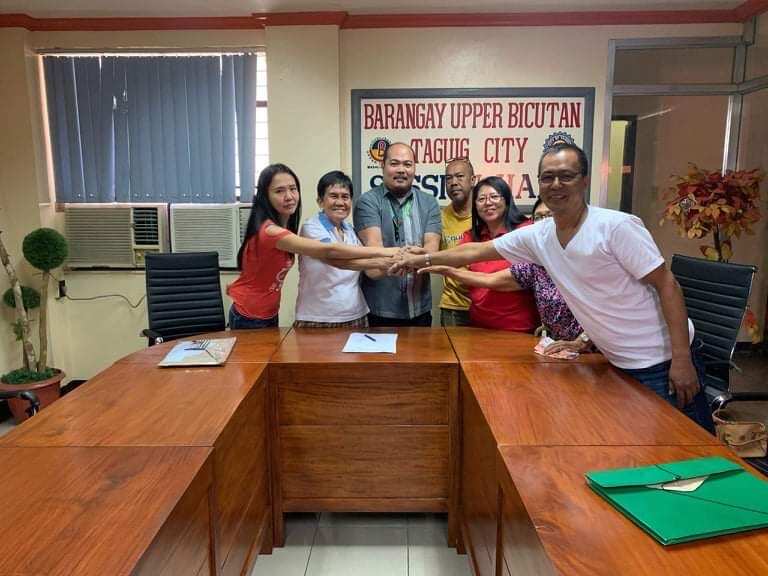Getting to know LMB’s Alternative Dispute Resolution (ADR) Officer Ronnie L. Buna and his success in conflict settlement
Conflict is said to be a fact of life. After all, people can’t be expected to agree on everything all the time. Usually, conflict would make its way when one’s act is subjected to different interpretations. One might understand and accept the actor’s intention, while the other might completely disregard it and replace it with their own. It’s like diving into the ocean without knowing whether the fall will be splashy and noisy or quiet and serene. It is comforting to know, however, that while conflict is inevitable, settlement is possible.
That general concept of conflict translates into specific ones. Take for instance land conflicts. Land conflicts have been present for a long time. The Courts, of course, seems to be the common and convenient venue of settlement. Then came the Alternative Dispute Resolution (ADR) Act of 2004 which offers a simple and uncomplicated procedure of resolving conflicts by promoting out of court settlement and party autonomy. But how simple and uncomplicated ADR can be to an ADR Officer? We ask LMB’s ADR Officer (ADRO) Ronnie L. Buna on how he manages to almost always settle all land conflicts assigned to him and what does it take to become an effective ADRO.
“It was just luck and application of what we were taught of during the ADR training” he shyly said.

The ADR Training referred to by ADRO Buna was conducted to train DENR personnel in handling ADR proceedings over land conflict cases, among others. The guidelines in conducting the same are also provided under DENR Administrative Order (DAO) No. 2016-30.
“Land conflict seems to arise when there are several claims or interests over the same land. The sad reality is that, most of the time, conflicting claims or interests are between or among family members. That is why, the fulfillment that you get when you settle a conflict is incomparable because more than the settlement of the property involved, the relationship of the Parties is somewhat restored,” ADRO Buna states. He further stressed that having gone through the ADR Training offered by the Department have helped him settle the cases referred to him.
Out of the six land cases assigned to him, ADRO Buna was able to settle four. That is impressive. “I may not have the figures to show how often ADR results in a successful settlement, but being an ADRO myself, I know that it is a skill more than a mere procedure.”
“An ADRO should maintain neutrality in assisting the Parties in resolving their issues. Whenever I sense the possibility of compromise between the Parties, I relentlessly pursue their intentions until they reach an agreeme
nt,” he notes.
The conduct of ADR is one thing, the resolution of a conflict thru ADR is another thing. Facilitating the Parties to arrive into a settlement is not that simple. The standard procedures are there to guide you but it is your execution th
at will spell a success or a failure of ADR.
Indeed, patience, neutrality and versatility appear to be among the traits that an ADR Officer must possess. It is not uncommon in an ADR proceeding that the Parties will see you as an opponent or that you are favoring one over the other. In such a case, it seems that indeed, being patient, neutral and versatile will go a long way in making the Parties decide to settle.
“Every ADR proceeding is different. The issues may be common but the approach will be different considering that every person is unique. The Parties come from different walks of life, different upbringing. It really poses a challenge every time, “he says.



“While being an ADRO has its challenges, the reward of being able to help someone get back his peace of mind is fulfilling. I think that fulfillment is priceless because you know how life-changing dispute settlement is for the Parties, “he says.
Looking back, ADRO Buna shares that even before becoming an ADRO, he considers himself as a peacemaker. He proudly remembers how the pieces of advice he gave proved to be valuable in fixing disagreements in his family and friends. “It helped me become a better person, and made a whole lot of difference when I became an ADRO.”
Truly, ADRO Buna showed us that conflict settlement is an interplay not just of training, skill and luck, but more of the ADRO’s principles and values. “Whenever I conduct ADR proceedings, I see to it that the Parties feel safe. That I can be trusted. That way, they can freely express their thoughts and desires which is essential in conflict settlement,” he notes.
“If you want to become an effective ADRO, you have to be passionate about it. In every ADR proceeding, you should be ready and willing to patiently and intelligently explore all possible options for the Parties to arrive at a settlement. Should the Parties fail to settle, however, you should not be discouraged. It is a learning experience that you can always do better the next time,” he advises.
Simply put, ADRO Buna wants to tell you that the key is not to avoid conflict but to find ways to resolve it. Procedurally, he is an active listener with a keen eye on verbal and non-verbal nuances. Substantially, he is a man of few words whose integrity speaks volumes. Surely, he is an exceptional ADRO that DENR is lucky to have.

